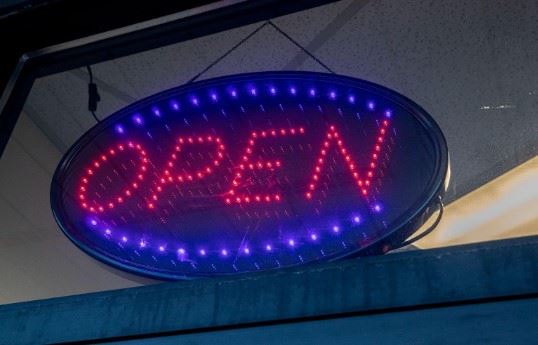So, you want to open a business, and you’ve decided on the franchising route, now what? While you’re researching franchise opportunities that would be a good fit for you, it’s essential to consider the costs of opening a franchise to ensure you have adequate capital to invest. While every new business has startup costs, an added benefit of franchising is that you’ll have an idea of what to expect and the costs for your new business. And the more information you have before you sign your franchise agreement, the better.

How to Find Information on Franchise Costs
To determine the costs to open a franchise, you’ll want to spend some time researching available franchisee resources such as a brochure or the franchise website, attend franchisee interest meetings or set up a time to ask the franchisor and current franchisees specific questions. The best way to estimate expenses is to seek financial information directly from the franchisor or other franchisees.
When you’ve decided to move forward with a franchise, you’ll be sent the Franchise Disclosure Document (FDD), which will outline all information about the franchisor as well as agreements you’ll sign. Additionally, Item 7 of the FDD will outline the estimated initial investment. Most franchisors are required to provide an FDD to prospective franchisees within 14 days before any signed agreement.
What Types of Expenses to Expect As a Franchisee

Before signing any franchise agreement, there’s one expense you might want to prepare for that’s technically outside of any franchise-related expense: attorney fees. It’s in your best interest to consult with a qualified franchise attorney because they can help you review the FDD and the franchise agreement. Once all is said and done and you’ve signed the franchise agreement, here are some expenses you can expect:
- Franchise-related costs: Ahead of opening your business, you will likely be expected to pay certain franchise-related charges upfront. These costs can include anything from a franchise fee to buildout costs. The franchise fee varies between franchises, but it typically covers the cost of training, support and site selection, among other things. Buildout costs can often include the charges of furniture, fixtures, equipment, signage and other expenses required to open.
- Startup Costs: The startup costs for any franchise can vary. You can expect to pay a fee to get a business license or other required certifications, as well as pay any local business fees required by the state. In addition to that, your franchisor could require you to set aside working capital to cover day-to-day business for a certain amount of time after you open. You may not turn a profit right away, and your franchisor may require you to have enough money upfront to cover things like operating costs and living expenses.
- Ongoing Business Expenses: Once your business is up and running, you can expect to pay various expenses ranging from inventory to payroll. Again, depending on the franchise, you may or may not have some of these typical costs, which could fluctuate. Some common business expenses include:
- Inventory
- Supplies and equipment
- Training
- Payroll
- Marketing and Advertising
- Rent and Utilities
- Etc.
What Does It Cost to Open a Winmark® Franchise?

At Winmark, our ultra-high-value retail resale niche has set us apart for over 30 years. Our brands Play It Again Sports®, Plato’s Closet®, Once Upon A Child®, Music Go Round® and Style Encore® currently have over 1,250 locations in the United States and Canada with many additional territories available. We believe in a 100% franchised system, which means that there are no company-owned stores, so all our time, effort and resources are focused on providing our franchisees with what they need to ensure they are in the best position to succeed.
Appropriate capitalization is a critical factor in the success of any business, and it’s what has set our franchisees up for success for over three decades. Here’s a breakdown of investment information for our brands:
- $90,000 to $105,000 cash or liquid assets*
- $400,000 net worth
*Liquid asset examples include cash, non-retirement stocks and bonds, etc.
Interested in learning more about the retail resale franchise opportunities we offer to experienced and fledgling business owners? Contact us today!